Typically made with flour, crackers are flat, dry baked foods. Being able to be used in both sweet and savory dishes makes it an amazing ingredient. Salt, herbs, seeds, or cheese are a few flavorings or seasonings that can be added. It does not help guinea pigs for this reason. That’s why it is not beneficial to guinea pigs.
Guinea pigs can’t eat crackers because they are a type of processed food. Crackers have a lot of salt, oil and are made with flour. These things make it unfit for the digestive system of guinea pigs.
Table of Content
Nutrition Facts of Crackers
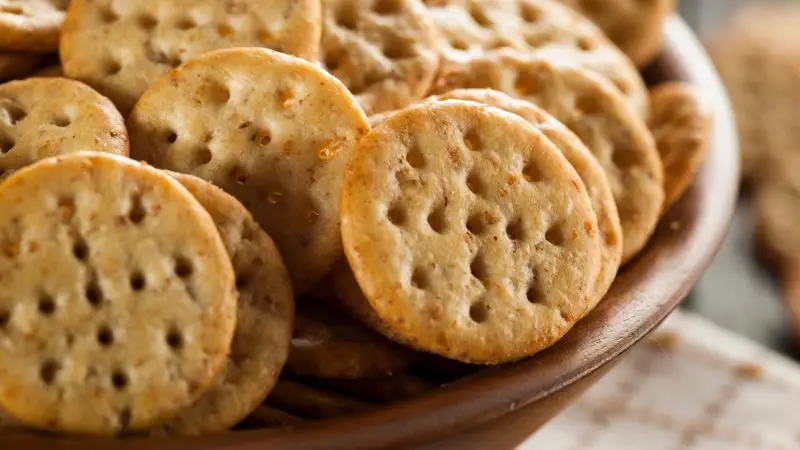
Crackers are not the healthiest brand of food. They are snacks for humans, and not necessarily a good one. Guinea pigs are not supposed to eat these foods because they lack important nutrients that are vital for their health. The following are the nutritional facts for 100 g of water crackers:
- Energy – 384 kcal
- Protein – 7.14 g
- Total lipid (fat) – 7.14 g
- Carbs – 72.81 g
- Dietary fiber – 7.1 g
- Sugars – 0 g
- Calcium – 0 mg
- Iron – 0 mg
- Magnesium – 20 mg
- Phosphorus – 100 mg
- Potassium – 99 mg
- Sodium – 571 mg
- Zinc – 0.65 mg
- Copper – 0.133 mg
- Selenium – 31.3 µg
- Vitamin C – 0 mg
- Vitamin B-6 – 0.041 mg
- Vitamin B-12 – 0 µg
- Vitamin A – 0 µg
- Vitamin E – 0.29 mg
- Vitamin D – 0 µg
- Vitamin K – 1.8 µg
- Folates – 24 µg
- Lutein + zeaxanthin – 17 µg
Risks to Consider When Feeding Crackers to Guinea Pigs
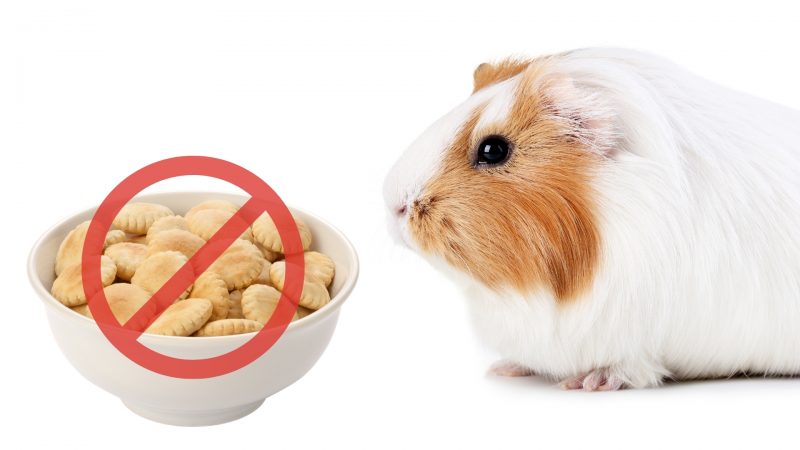
Crackers lack vitamin C. Without it, they can develop many illnesses and health problems. Mostly, when guinea pigs lack vitamin C, they get a disease called scurvy.
There is no vitamin A in crackers. Vitamin A is an important antioxidant that protects guinea pigs from free radical damage. Also, this vitamin fights inflammation, and it is beneficial for improving guinea pig’s eyesight.
Guinea pigs cannot consume too much salt. This snack has too much salt, and this cannot be digested well by guinea pigs. The extra oils, salt, and flour will cause bloating, gases, excessive thirst, or even constipation. All of this can have fatal consequences.
Crackers contain a lot of calories, carbs, protein, fat. If guinea pigs consume them, they can gain weight. Crackers with cheese are especially bad for guinea pig’s weight because cheese also contains many fats. All of these nutrients aren’t good for guinea pigs and can lead to obesity and shorten their lifespan.
Crackers, especially ones with salt on them, contain a lot of sodium. Too much sodium isn’t good for guinea pigs because it can cause an increase in blood pressure. Also, crackers are very caloric and contain too much fat, which isn’t good for blood vessels and blood pressure. All of this can increase the risk of cardiovascular diseases in guinea pigs.
One benefit of the crackers is that they have no calcium. This might be good for the cavy because calcium creates bladder and kidney stones in guinea pigs. However, this one benefit does not make crackers good for guinea pigs. After all, many nutrients are lacking in crackers, so this is a minor, unimportant benefit.
List of Some Crackers Guinea Pigs Can’t Eat
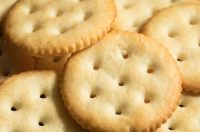
1. Ritz Crackers
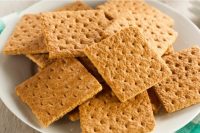
2. Graham Crackers
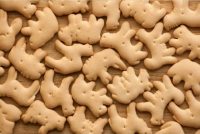
3. Animal Crackers
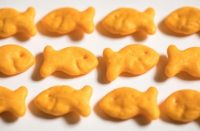
4. Goldfish Crackers
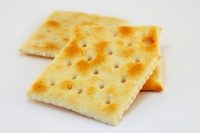
5. Saltine Crackers
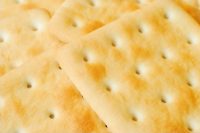
6. Club Crackers
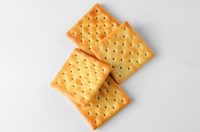
7. Cream Crackers
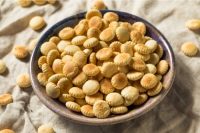
8. Oyster Crackers
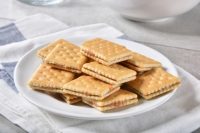
9. Peanut Butter Crackers
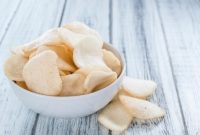
10. Prawn Crackers
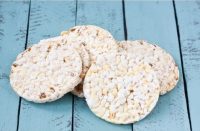
11. Rice Crackers
These are just some of the most common crackers but it is important to note that guinea pigs can’t eat any types of crackers. They are simply herbivore animals and they can’t eat processed foods. With all of this in mind, simply avoid crackers in their diets.
Quick Facts on Crackers
- John Pearson made the first cracker in 1792.
- The word “cracker” originated from the crackling sound created by the accidental burning of the biscuit.
- The holes on crackers are there for a reason, and they allow steam to flow during cooking.
- There are many varieties of crackers in the world.
- Crackers are typically shaped circular or square.
- Crackers can also be made in other shapes, such as different animals, fishes, stars, and triangles.
- Crackers are commonly eaten as snacks, with sliced meat, cheese, and vegetables.
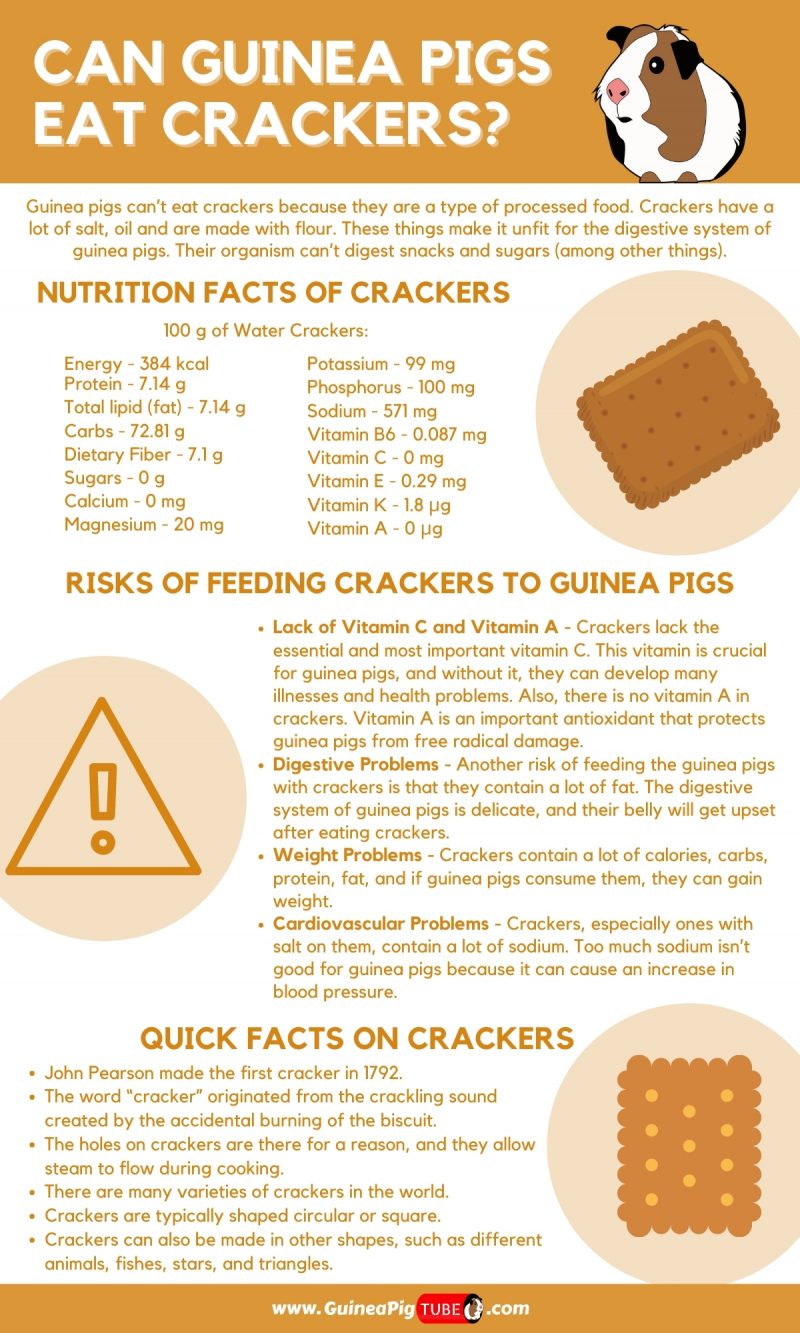
We have also made a full list of foods that guinea pigs can and can’t eat (150+ Types of Foods). Be sure to also check our recommended products page for everything you will ever need to assure a happy life for your guinea pigs. Hope this information was helpful and you have found the answer you were looking for.
List of Sources
Nutrient Requirements of Laboratory Animals: Fourth Revised Edition
The Effects of Diet on Anatomy, Physiology and Health in the Guinea Pig
